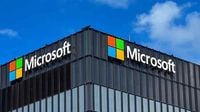In a significant shift for user security and account management, Microsoft has announced plans to eliminate passwords for over one billion users worldwide. This move, detailed in a report released on March 31, 2025, is part of the company's broader strategy to enhance online security by phasing out traditional password systems, which have become increasingly vulnerable to hacking and user error.
According to Microsoft, the password era is officially coming to an end. The company previously hinted at this transition back in December 2024, indicating that it would move towards a more secure authentication method. As passwords have become easier for hackers to guess or for users to forget, Microsoft is adopting a new approach that will replace passwords with two-factor authentication methods.
Forbes has reported a worrying trend in online security, noting that as the password phase-out approaches, cybercriminals are ramping up their attacks. The publication revealed that approximately 7,000 attacks on password-protected accounts occur every second, a staggering increase that has nearly doubled from the previous year. This alarming statistic underscores the urgency of Microsoft's decision to enhance security measures.
So, what will replace the traditional password? Microsoft plans to implement a system using passkeys, which will be linked to hardware devices or secured by biometric factors like fingerprints or facial recognition. Unlike passwords, which can be easily stolen or leaked, passkeys are designed to be foolproof, significantly reducing the risk of phishing attacks. This new system will allow users to utilize a unified passkey across all their devices and websites, eliminating the common hassle of remembering multiple passwords.
As part of this transition, Microsoft account users will soon encounter updated sign-up screens for both web and mobile applications. Under the new system, signing in will only require users to enter their email addresses. Once logged in, users can create their own passkeys. Microsoft claims this updated sign-in logic will make the process three times faster than traditional password operations.
However, Microsoft has acknowledged that if a user has both a passkey and a password, the account could still be at risk of phishing attacks. This concern highlights the importance of fully transitioning to the new system and ensuring that users are well-informed about the changes.
While Microsoft is leading the charge in password elimination, other tech giants are taking different approaches. For example, Google has indicated that it will maintain passwords as a backup credential for account access, suggesting a more gradual transition for its users.
In addition to the password changes, Microsoft is also tightening its grip on Windows 11 installations by making it more challenging for users to bypass the requirement of linking a Microsoft account during the setup process. The latest Insider Preview build of Windows 11, version 26200.5516, has removed the popular workaround known as the bypassnro.cmd script. This script allowed users to circumvent the mandatory Microsoft account requirement during the initial setup.
According to a blog post from the Windows Insider team, the removal of this script was intended to enhance the security and user experience of Windows 11. The update ensures that all users must complete the setup process while connected to the internet and logged into a Microsoft account. This change has sparked frustration among users who prefer to install Windows 11 using a local account, often for privacy reasons.
Previously, users could easily bypass the account requirement by entering a specific command in the command prompt during the setup process. However, with the removal of this option, many users are left searching for alternative methods to install Windows 11 without linking their personal accounts.
Despite the crackdown on bypass methods, some alternative workarounds remain. For instance, users can still create a bootable Windows 11 USB drive using the Rufus USB Creator Utility, which allows them to disable account requirements during installation. Another method involves accessing a hidden local account setup screen via the developer console during the installation process. By pressing Ctrl + Shift + J and entering a specific command, users can access the local account setup screen, as demonstrated by tech enthusiasts.
However, experts warn that these workarounds may not be available for long. Microsoft is likely to continue blocking any methods that allow users to avoid linking their accounts, which raises concerns among privacy advocates and tech-savvy users alike. Many believe that Microsoft should provide users with the choice to install Windows 11 with either a local account or a Microsoft account, as was the case in previous versions of the operating system.
Critics argue that this shift towards mandatory Microsoft accounts undermines user autonomy and privacy. While Microsoft promotes the benefits of account linking, such as syncing services and improved security, many users prefer the simplicity and privacy of local accounts. This ongoing debate highlights the tension between user choice and corporate policy in the tech industry.
As Microsoft pushes forward with these changes, the tech community will be watching closely. The company’s decision to eliminate passwords and enforce Microsoft account requirements for Windows 11 installations marks a significant shift in the way users interact with technology. While these changes aim to enhance security, they also raise important questions about user control, privacy, and the future of online authentication.
In summary, Microsoft is taking bold steps to phase out passwords and strengthen security measures for its users. With the rise in cyberattacks and the growing demand for secure authentication methods, the company's transition to passkeys and mandatory Microsoft accounts reflects a broader trend in the tech industry. As users adapt to these changes, the importance of balancing security with user choice and privacy will remain a critical conversation.



